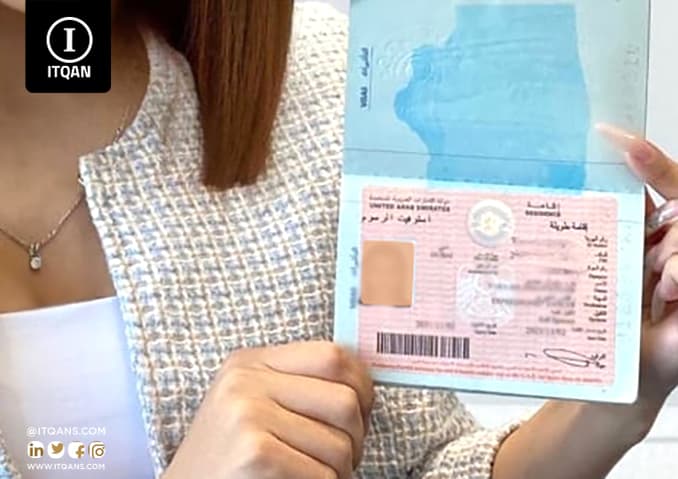Establishing a company in the United Arab Emirates is an important strategic step for investors seeking to benefit from the dynamic and advanced business environment in this country. The UAE provides an ideal investment environment that witnesses continuous economic growth and provides diverse opportunities in various sectors. Establishing a company here requires clear, specific steps that include choosing the appropriate company type, determining geographic location, and meeting legal and regulatory requirements. How to establish a company in the UAE requires a thorough understanding of local legal procedures, as investors have several options, including establishing a local company, a company in a free zone, or a joint company with a local partner. Thanks to the ease of business organization and flexibility in legislation, foreign investors can take advantage of the wide opportunities available to them to start and expand their businesses in this modern and thriving country.

How to establish a company in the Emirates
جدول المحتوى
ToggleEstablishing a company in the Emirates
Establishing a company in the UAE is an important strategic step that requires careful planning and knowledge of local legal and regulatory procedures. The UAE has an advanced investment environment that attracts investors from all over the world, thanks to its advanced infrastructure and flexible laws that support businesses.
When starting to establish a company in the Emirates, the investor must first choose the appropriate type of company, such as a local company, 51% of which must be owned by an Emirati citizen, or a company in a free zone that provides great independence and distinct tax and customs privileges. After choosing the type, the company name is determined and its compliance with local laws is ensured and the necessary capital is provided.
The next step includes preparing legal documents such as the company charter and articles of incorporation, and submitting to register the company with the relevant authorities such as the Department of Economic Development or the bodies concerned with free zones. It also requires obtaining the necessary licenses and appropriate approvals, which requires constant communication with local authorities and awareness of local legal and regulatory requirements.
After completing these procedures, a bank account is opened in the company’s name to manage financial operations and ensure compliance with all local tax and legal regulations. Adherence to local standards and procedures is essential to ensure business continuity and success in the dynamic and diverse UAE market.
How to establish a company in the Emirates
Establishing a company in the UAE requires following a set of legal and administrative steps and procedures. Here is a comprehensive look at how to set up a company in the UAE:
- Determine the company type: Choose the company type that is appropriate for your business. Options include: Limited Liability Company (LLC), Public Joint Stock Company, Sole Proprietorship, Branch of a Foreign Company, or Free Zone Company.
- Choosing a Business Name: Select a business name that is consistent with local rules and regulations. The name must be unique and not used by another company. Register the trade name with the Department of Economic Development (DED).
- Preparing legal documents: Preparing and submitting the necessary documents such as the articles of association and memorandum of understanding. Ensure that documentation complies with local laws and is complete and accurate.
- Location selection: Determine the company’s location, whether it is in a free zone or on the mainland. Free zones offer benefits such as full foreign ownership and tax exemptions, while the mainland allows trade within the Emirates.
- Obtaining licenses and approvals: You may need to obtain additional licenses from the relevant authorities depending on the type of business activity. These licenses include approvals from the Ministry of Economy, the Ministry of Labor, and the Immigration and Passports Departments.
- Opening a bank account: Opening a business bank account in a local bank to facilitate financial transactions. You may need to provide company incorporation documents and personal identification.
- Company registration: Officially register the company with the Department of Economic Development or the competent authority in the selected free zone. Complete all procedures and pay the required fees.
- Obtaining work visas: Depending on the type and size of the company, you may need to obtain work visas for employees. Submit visa applications and provide the required documents to the relevant authorities.
- Compliance with Legal Requirements: Ensure compliance with all local laws and regulations related to employment and labor, including labor, tax, and environmental laws.
- Getting started: After completing all the previous steps, you can start operating your company in the UAE. Ensure that all legal and administrative matters are followed up on a regular basis to ensure ongoing compliance.
Fees for establishing a company in the UAE
Fees for establishing a company in the UAE vary greatly depending on the type of company and the location you choose to establish it (such as a free zone or within the emirate). Fees usually include:
- Registration fees: Paid to the Department of Economic Development or the competent authority to register the company.
- Legal consulting fees: If you use consulting services to help you set up the company.
- Core capital: Some types of companies may require a certain core capital that must be paid.
- Additional services fees: such as arranging documents, permits, and financial and accounting services.
- Commercial license fees: vary according to the type of activity and geographical area.
Documents required to establish a company in the Emirates
To establish a company in the UAE, you are required to submit a set of basic documents that vary slightly depending on the type of company and the region you choose. Here is a general list of required documents:
- Valid identity document for founders: Passport for foreign individuals.
National ID card for Emirati citizens. - Articles of Association: The Articles of Association need to clarify the basic information of the company such as its name, type, headquarters, and specific activities.
- Memorandum of Understanding: Documents the administrative and operational details of the company, including the distribution of profits and responsibilities.
- No objection certificate: If you intend to establish a company in a free zone or in specific locations, you may need a no objection certificate from the responsible authority.
- Financial report: You may be required to submit a financial report showing the company’s ability to bear the expected financial costs.
- Registration and licensing fees: Submit approved fee payments to the Department of Economic Development or the competent authority in the free zone.
- Activity permit: clarifying the details of the proposed business activity and declaring it.
- Employment contracts and accounting documents: If the company intends to employ employees or provide accounting services, the necessary employment contracts and accounting documents must be provided.
- Documents of partners or shareholders: If there are partners or shareholders in the company, they may be required to provide additional personal documents such as passports and identity certificates.
- Tax Declarations: Provide tax declarations for the company and shareholders if required.
Ways to establish a company in Dubai
Establishing a company in Dubai can be done in several different ways, depending on the type of company you want to create and your specific needs as an investor. Here are some common ways to start a company in Dubai:
- Local Company: Requires that the company be at least 51% owned by an Emirati citizen.
The options are limited liability company (LLC) or joint stock company (PJSC) depending on the size and type of activity.
- Free Zone Company: Free zones such as Dubai provide foreign investments with an independent business environment.
It provides advantages such as customs and tax independence and no need for a local partner.
- Sole Proprietorship: Allows an individual to establish and operate a business without partners.
There are different types such as sole proprietorship.
- Subsidiary of a Foreign Company: Allows foreign companies to open branches or subsidiaries in Dubai.
Requires certain procedures for registration and compliance with local laws and tax requirements.
- Joint Venture: It represents a partnership between a foreign investor and a local investor to cooperate in a joint project.
At the conclusion of this comprehensive article on how to establish a company in the UAE , we see that clear and precise procedures play a crucial role in the success of the process. With good planning and professional advice, future businessmen can benefit from the advanced infrastructure and stimulating economic environment in the UAE. If you are thinking about starting your own business, now is the right time to explore the available opportunities and conditions required to establish your company in this country, which has a dynamic market and broad investment opportunities.
The most important frequently asked questions about establishing a company in the Emirates
What types of companies can be established in the UAE?
There are several types of companies such as local company, free zone company, sole proprietorship, and joint venture company. Each type has different requirements and advantages.
What are the basic requirements for establishing a company in the UAE?
Requirements include choosing the company type, defining the business activity, providing the required capital, and preparing related legal documents.
What licenses and permits must be obtained?
Licenses and permits vary depending on the type of business, and require necessary documentation and compliance with local authority requirements.
What are the investment and economic advantages of establishing a company in the UAE?
The UAE enjoys an advanced investment environment that includes excellent infrastructure, flexibility of business laws, and tax and customs privileges in some free zones.

















